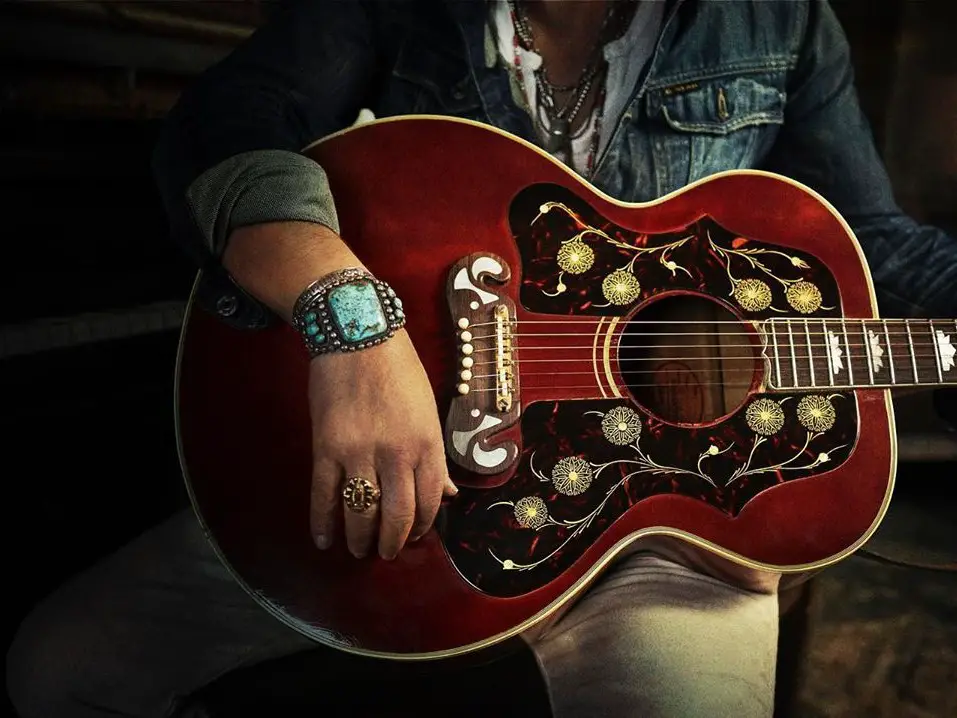From New Jersey to the Golden State, Bruce Springsteen has traveled the country with his music, and nostalgia is setting in for the 69-year-old American rock icon. “Western Stars” channels the aesthetics of 1970s Americana, namely Southern California pop, in a deeply personal tribute to a fast-fleeting era of music and cinema.
“This record is a return to my solo recordings featuring character driven songs and sweeping, cinematic orchestral arrangements,” Springsteen said in a recent press release. “It’s a jewel box of a record.”
Each song has a story — rarely a happy one. Do not let the beautiful accompaniment of soothing strings, catchy horns and keyboards lull you into gentle reminiscence — this album is a story of regret, heartache and loneliness and how one eventually comes to reflect on those feelings with a bittersweet joy.
Of the 13 tracks, “Hitch Hikin’” and “The Wayfarer,” or “There Goes My Miracle” and “Hello Sunshine” are intentionally coupled and are best listened to sequentially. However, in order to truly appreciate “Western Stars,” the track list should be listened to in order. Although each song is an independent story with different characters, one could interpret the entire album as a soundtrack following one character as he journeys from glory to obscurity.
The title track tells the story of an actor who once starred alongside John Wayne and is now being recognized only for “that commercial with the credit card.” He once felt the thrill of Hollywood and the whirlwind of the fast-paced life described in “The Wayfarer.” But as the aging actor drinks a hangover remedy, he realizes it was all a self-made lie and that he was simply living the “same sad story, [of] love and glory,” which eventually proves to be unfulfilling, lonely and temporary.
“Western Stars” refers to the actors of big-screen hits and the night sky. The washed-up actor laments that “these days there ain’t no more, now there’s just again.” So, he takes off across the desert to find the heart of the American West, which is the inspiration of the genre. He hopes to come across a place where “the western stars are shining bright again.”
The Boss pours his heart and soul into his newest album, however, it lacks the iconic Springsteen sound that fans know and love. As a tribute to a bygone American culture, “Western Stars” is not meant to focus on Springsteen — he is simply the messenger. The use of various instrumentals and different vocals allows Springsteen to fade into the sound and become a part of the background rather than the focal point.
The effect is akin to a movie audience finding a character portrayal by an unknown actor more convincing than one portrayed by an A-lister. Anonymity fosters authenticity, which is exactly what Springsteen strives for in his tribute.
The AV Club describes the narrative album as “a soundtrack to a movie that doesn’t exist — and [written] in the very style of those long-ago pictures that so moved him [Springsteen].”
“Hitch Hikin’” and “The Wayfarer” describe the nomadic lifestyle of a restless soul, but the former is by far more innocent and carefree. Light guitar plucking and soothing orchestral strings play softly over lyrics about the joy of children, simple love and the freedom of following the music and the wind. The jazzy, upbeat sounds of “The Wayfarer” almost deceive listeners into believing that the hitchhiker still genuinely enjoys this life. But when he’s left with “a heart of stone” and sleepless nights, the hitchhiker reveals that his carefree spirit fled long ago.
Where “The Wayfarer” is a warning to a woman about the life of a drifter, “Tucson Train” laments at what the hitchhiker left behind. He seeks a new life as a construction worker and pleads for his love to return to him — to “show her a man can change.”
The next three tracks, “Western Stars,” “Sleepy Joe’s Café” and “Drive Fast,” explain how falling from one’s prime creates an internal emptiness that one desperately attempts to fill. As the succeeding songs reveal, those attempts often fail. The drifter is still running from his past, seeking odd jobs, pining for the love he did not appreciate and regretting the lies he told himself about what he truly wanted.
By “Hello Sunshine,” the hitchhiker has grown tremendously as a character. He admits his “little sweet spot for the rain, for the rain and skies of grey” led him to heartbreak and pain. The wayfaring desires of youth poisoned him, and the miles of empty road were becoming less of an uncharted adventure and more of a desolate void. Running on empty, he apologizes to his lost love and his lost life, warning that if “you fall in love with lonely, you end up that way.”
“Moonlight Motel,” the last track, is a gentle and tragic lullaby, as the bustling roads of “Hitch Hikin’” are now quiet. The motel that once served as a nest for young lovers, a bed for weary travelers and a playground for children now stands empty and forgotten — except for one old man, a former hitchhiker, who sits alone in the abandoned parking lot. He raises a glass to himself and his lost love and pours one more “out onto the parking lot, to the Moonlight Motel.”
In the end, the hitchhiker comes to embrace both his joys and his regrets when he recognizes that they are pieces in the story of his life. He makes a toast, saying “it’s better to have loved” and lived. Springsteen seems to be sitting in his own Moonlight Motel, and he is pouring out one last bittersweet glass to his inspirations with “Western Stars.”
















